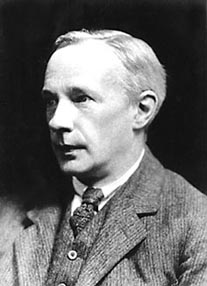 G.E. Moore is one of the most important, and the most overlooked, figures in Analytic philosophy. All too many historical surveys of early Analytic philosophy treat him as attached to Bertrand Russell‘s hip, and as soon as they have got done discussing their joint break with Absolute Idealism and offered a rather Russellian understanding of Moore’s work on Analytic method, they pretty quickly move on to talk about what’s taken to be the heavy-duty stuff: Principia Mathematica, Wittgenstein, and the Vienna Circle. All of this is too damn bad; for as valuable as the parts of Analytic method that Moore and Russell developed more or less in tandem are, there are in the end deep differences between Moore and Russell, in the motivations that led each to adopt Analytic method and the understanding of the aim and right method of philosophy that resulted for each. And I think that it is quite often (although perhaps not always) the distinctively Moorean picture that has something of lasting value to offer us today, even as very few Analytic philosophers can be found anywhere who actually adhere to most or even many of the strictures of the classical Moore-Russell program of
G.E. Moore is one of the most important, and the most overlooked, figures in Analytic philosophy. All too many historical surveys of early Analytic philosophy treat him as attached to Bertrand Russell‘s hip, and as soon as they have got done discussing their joint break with Absolute Idealism and offered a rather Russellian understanding of Moore’s work on Analytic method, they pretty quickly move on to talk about what’s taken to be the heavy-duty stuff: Principia Mathematica, Wittgenstein, and the Vienna Circle. All of this is too damn bad; for as valuable as the parts of Analytic method that Moore and Russell developed more or less in tandem are, there are in the end deep differences between Moore and Russell, in the motivations that led each to adopt Analytic method and the understanding of the aim and right method of philosophy that resulted for each. And I think that it is quite often (although perhaps not always) the distinctively Moorean picture that has something of lasting value to offer us today, even as very few Analytic philosophers can be found anywhere who actually adhere to most or even many of the strictures of the classical Moore-Russell program of conceptual analysis
. (The reason why is, briefly, that Russell worked on analytic method from essentially Cartesian motives–his longing for certainty and his efforts to fight what he saw as an uphill battle against thoroughgoing skepticism, whether in his efforts to provide sure foundations
for natural science, for everyday perceptual reports, or for mathematics. But Moore’s motives are, strange though it may sound, essentially Kantian; his work begins from the sure truth of the propositions of common sense, and does its best to carefully work out how that truth is possible. Even if the conclusions he ends up at are wrong–and they often are–the picture of philosophy he offers, unlike Russell’s, has much to say to us today–even to those who have set most of programmatic conceptual analysis to one side. It is also, I might add, perhaps the single most important uncredited influence on the development of Wittgenstein’s philosophy.)
In any case: Moore is left out too often when people are telling the story of early Analytic philosophy, and one of the unfortunate side effects is that there is very little of Moore’s philosophy available on the web, even though many of his most influential works have now entered the public domain. But I’m happy to announce a milestone in my own effort to undo a bit of that neglect: the first Chapter of Moore’s Principia Ethica is now completely transcribed and available online (it’s one of the inaugural projects at the Fair Use Repository; more about that, soon). The chapter–entitled The Subject-Matter of Ethics
–is probably the best-known of all of Moore’s work on ethics; it contains his (in)famous Open Question Argument and discussion of the Naturalistic Fallacy
; it also more-or-less single-handedly inaugurated Analytic meta-ethics. It is now freely available, in beautiful semantic XHTML, for you to read, search, cite, and reprint as you see fit.
In celebration of the occasion, I have also put up a copylefted draft of one of my own essays on Moore, Closing the Question About the Open Question Argument. It’s an attempt, first, to get clear on just how the Open Question Argument works, and, second, to assess its import for meta-ethics in light of important criticisms by Peter Geach. Although I think that Geach’s criticism is vitally important, I argue that important gaps remain in his account, which are best plugged by considerations from Christine Korsgaard’s work on normativity–and, at the end of the plugging, we will have found ourselves coming back closer to Moore’s account than we might have thought. Comments are welcome..
Enjoy!

 Here’s a detail from a piece of marketing flotsam that I found recently attached to the advertising section of some magazine or another: an insert hawking the
Here’s a detail from a piece of marketing flotsam that I found recently attached to the advertising section of some magazine or another: an insert hawking the